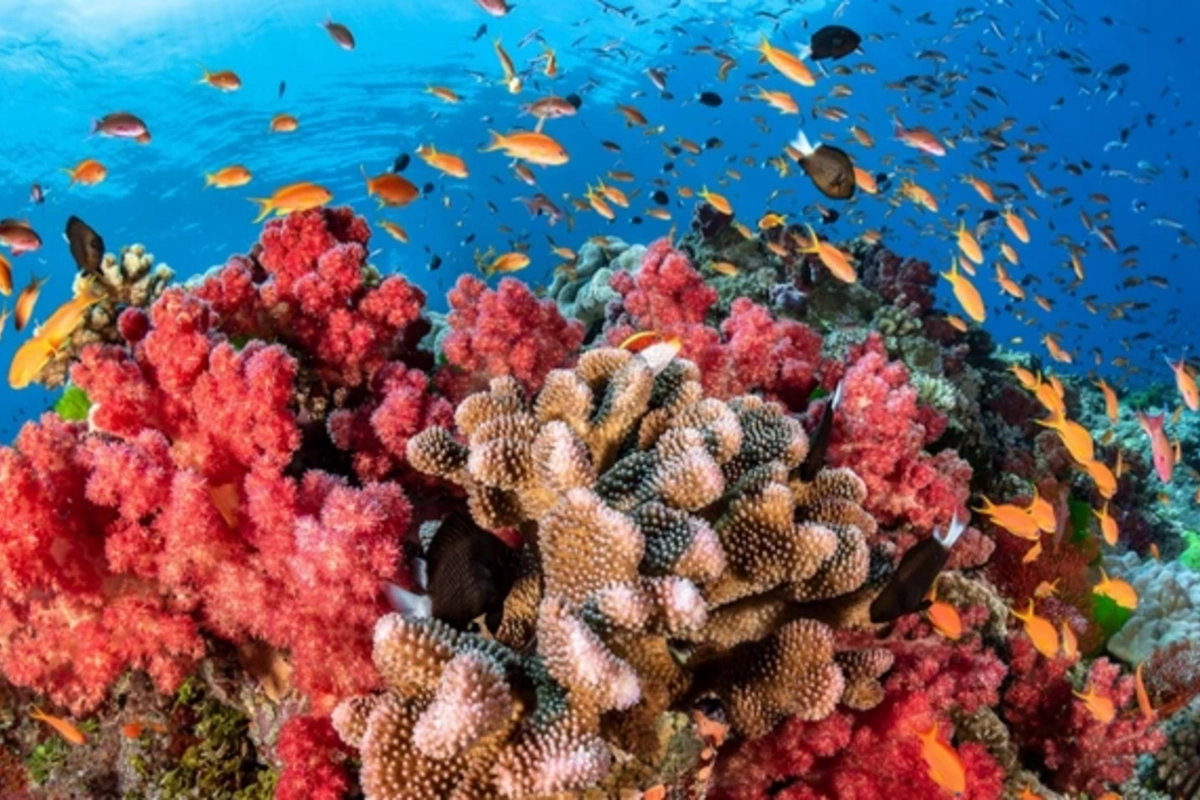24 Apr , 03:54 2025
3

Global catastrophe: record 84% of world's coral reefs affected by bleaching
As reported by TUT.AZ, this is according to The Guardian, citing the latest data from the Coral Reef Watch organization.
According to shocking statistics, since January 2023, the vast majority of coral reefs in 82 countries worldwide have undergone mass bleaching due to unprecedented temperature increases in the planet's three main oceans. These unique ecosystems, which support a third of all marine species, are on the brink of survival, causing alarm in the scientific community.
The dynamics of coral reef destruction are reaching threatening proportions. Over recent decades, the situation has rapidly deteriorated: from 21% of affected reefs in 1998 to 37% in 2010 and 68% during the period 2014-2017. The current figure of 84% breaks all records and signals a critical state of marine ecosystems.
"The fact that so many reefs have been affected indicates that ocean warming has reached such a level that there is no longer a safe haven from coral bleaching and its consequences," said Derek Manzello, director of Coral Reef Watch.
In many regions, including the world's largest Great Barrier Reef off the coast of Australia, bleaching has been observed for several consecutive years. Unique reefs off the coast of Madagascar and the east coast of Africa have been affected, including South Africa's iSimangaliso Wetland Park, a UNESCO World Heritage site.
Although corals can recover after bleaching if temperatures are not too extreme, the consequences of the current phenomenon could be catastrophic. Scientists report that after bleaching in Florida, on average one in five corals died, while on the Pacific side of Mexico, between 50% and 93% of corals died in some areas.
"Reefs have never faced anything like this before," emphasized Dr. Britta Schaffelke from the Australian Institute of Marine Science, calling the situation unprecedented.
Coral reef bleaching is a direct consequence of global warming and climate change. Rising ocean temperatures cause corals to expel symbiotic algae that provide them with nutrition and vibrant coloration. Without these algae, corals bleach and become more vulnerable to disease and death.
Scientists warn that if urgent measures are not taken to combat climate change and protect coral reefs, we risk losing these unique ecosystems and all the biodiversity associated with them.